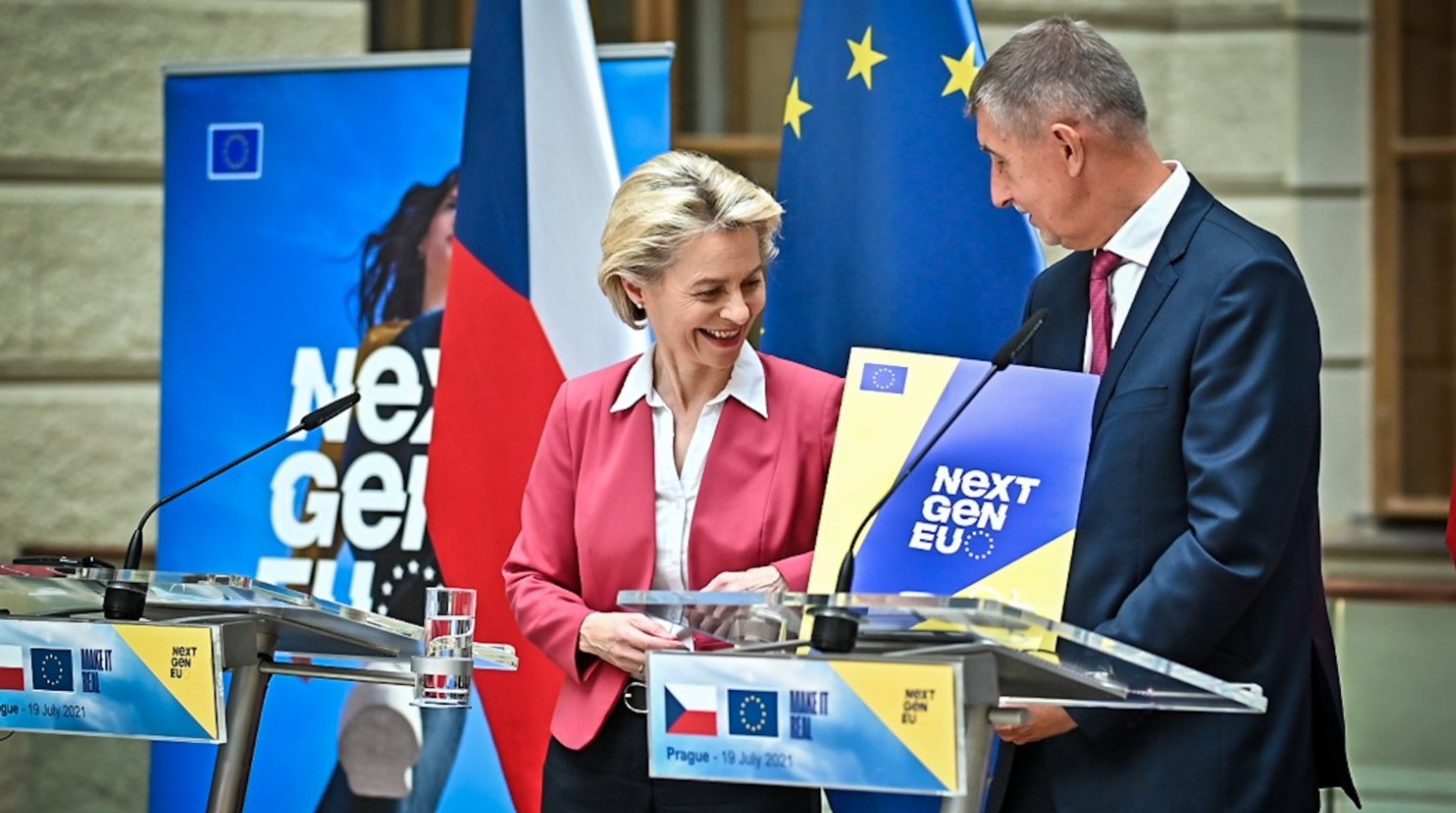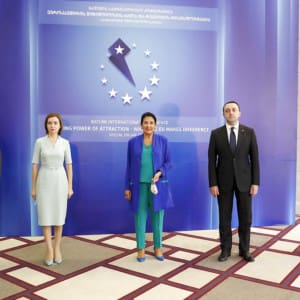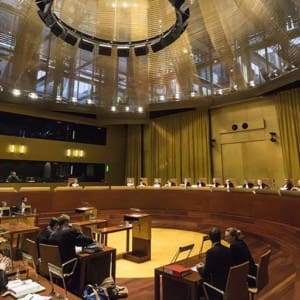Prime Minister Andrej Babiš welcomed President of the European Commission Ursula von der Leyen in Prague, where Von der Leyen talked about the approved Czech National Recovery Plan. The European Commission approved the plan on Monday, opening the way for the Czech Republic to receive 180 billion korunas (€7 billion) in subsidies from the European Union’s crisis fund. However, Von der Leyen stressed that the Czech authorities would have to prevent a possible conflict of interest so that the country could withdraw the full amount. According to Babiš, Czechia redistributes European finances transparently.
“We compiled the plan so that everyone would benefit from it,” Babiš said after the meeting with the head of the European Commission.
“For all of us, the last year and a half was a huge challenge for which it was impossible to prepare. We still have to go through vaccinations. We are still running a marathon, and the economic recovery will take even longer,” added the prime minister, expressing happiness with the approved recovery plan.
“It is a large amount of money that will be invested in the gradual restart of the economy after Covid-19 and the improvement of the quality of life of our citizens,” he noted.
“It will bring all citizens, for example, better communication with the authorities, electronic healthcare, quality and safe rail travel, support for digital skills education in schools or the modernization of social services,” said the prime minister, naming a few examples.
According to him, a considerable part of the money will go to healthcare, specifically on oncological prevention and care. Entrepreneurs, start-ups, and cultural and creative sectors will also receive support.
“Municipalities and cities will surely welcome investments in faster internet connections, brownfields, adaptation to climate change, nature protection, or reforestation following the bark beetle calamity,” he said.
“We are preparing our society to be more resilient, to be able to cope with future health challenges that may arise,” said the head of the European Commission.
“This is exactly the recovery that both Europe and Czechia need,” she added.
Von der Leyen noted that the Czech plan also envisages further steps to protect the climate, such as creating charging stations for electric vehicles, investing in renewable energy sources, or building infrastructure for waste recycling. At the same time, she expressed satisfaction over Czechia wanting to invest in healthcare.
The crisis fund, for which the EU has taken out an unprecedented joint loan in the financial markets, is intended to help member countries revive the economy affected by the coronavirus pandemic and to better prepare the economy for a possible recurrence. According to Brussels, in this plan, Czechia has met the fundamental requirements, which state that countries must allocate at least 37 percent of finances from the fund to projects designed to protect the climate and one-fifth of finances to the digitization of the economy. According to the Commission’s assessment, the Czech government reached 42 percent in the first criterion and 22 percent in the second. The plan further includes investments in producing energy from renewable sources, replacing coal-fired boilers, and improving the energy efficiency of buildings. The recovery plan also focuses on nature protection and water management, as well as investment in sustainable mobility. According to the EC’s assessment, additional money will go to digital infrastructure, digitalization of healthcare, or the justice system.
However, in order for Czechia to receive the entire amount from the fund, the Czech authorities will have to comply with the criteria set for protecting EU money from conflicts of interest in the coming months.
In an audit published this year, the European Commission concluded that the authorities had not yet resolved a systemic problem with the conflict of interests of Prime Minister Babiš. According to the auditors, Babiš still controls the Agrofert holding, although he has put his shares in trust funds. The Commission, therefore, does not intend to pay subsidies from the structural funds to companies in the Agrofert holding. PM Babiš has repeatedly said that he has no conflict of interest. “I can only say that European money and the money of European taxpayers are distributed transparently in the Czech Republic,” Babiš reacted at the Monday press conference.
Title image: Czech Prime Minister Andrej Babiš with Ursula von der Leyen, president of the European Commission, at a press conference in Prague (Andrej Babiš/Twitter)






